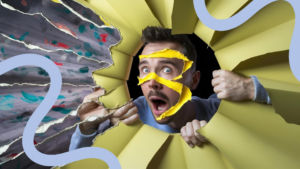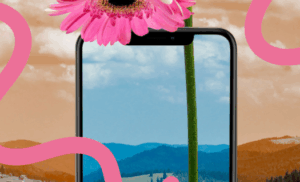It is being a year of experiences and surprises. This would be the mildest way to describe this period. It has also brought us a lexical revolution. De-escalation, lockdown, asymptomatic, social distancing, PCR, PPE… Few events have altered language as much in such a short period of time as the COVID-19 pandemic. Also for storytelling brand Spain.
On a geostrategic scale, the situation has been no different. In July, we learned a new narrative in Spain: that Sweden, the Netherlands, Denmark and Austria are the ‘frugal countries’ or Frugal Four, as opposed to the wasteful countries of southern Europe, among which we find ourselves.
The way we call things and describe concepts not only shapes a certain form of reality, but also shapes its narrative or storytelling. Although we usually apply narrative techniques to the field of personal branding and corporate communication, countries also have their own storytelling. For Spain, however, theirs is not working. We are talking, logically, about Spain’s brand storytelling.
Geostrategic storytelling
The United States is a great example of what we can call “geostrategic storytelling”. The country’s origins led to a series of values, emotions and principles being attached to it, which have been passed down from generation to generation with little change. Hardly anyone disputes that the United States is the land of opportunity and freedom.
Although the conquest of the West was very different from what was shown in Western films, what has remained in everyone’s mind is the courage of the pioneers and their entrepreneurial spirit. Their efforts to tame the wild territory and civilise it shaped the country’s history.
That geostrategic narrative lives on today in the world of start-ups and technological entrepreneurship. It continues to attract foreign talent, just as the possibility of grabbing a piece of land on the Pacific coast or striking it rich searching for gold in the Yukon once did. A clearly defined and strategic country-brand narrative.
From the PIGS to the Frugal Four
While the country narrative associated with the United States has taken root and forms part of the country’s intangible values, others do not seem to fare as well. The 2008 economic crisis turned the southern countries into ‘pigs’ (PIGS: Portugal, Italy, Greece, Spain), and that archetype took hold because it coincided with the traits often attributed to us from outside: lazy, unproductive, fraudulent, party-loving…
In July, in the midst of negotiations for the European aid package to cope with the economic effects of the pandemic, the term Frugal Four became popular, encouraged by the same stakeholders: the Netherlands, Denmark, Austria and Sweden.
Opposed to the spendthrifts of the south are the prudent and austere of the north. And although the concept has been around for many years, it is only now that it has been accepted by the media to describe a more efficient economic style. This, of course, is debatable. It is also debatable whether Spain’s brand storytelling is progressing adequately in lean times.
The term ‘Frugal Four’ would differentiate the austere countries of northern Europe from the spendthrifts of southern Europe.
As in the case of brands, it is difficult for us to understand that their emotional ownership belongs to the users. It is these, in the form of visitors or tourists, who have been building the Spain brand storytelling for decades.
The developmentalist model of the 1960s, which promoted tourism as the basis for economic growth, contributed to this. It did it so efficiently that it is difficult for us to change the discourse and show that the context has changed.
Bullfighting, paella and flamenco
Si buscamos qué es lo que destaca de la marca España en el extranjero, veremos que siguen llamando la atención los mismos referentes vinculados al ocio y la gastronomía: la paella, el flamenco, los toros, el fútbol (más bien, el Real Madrid y el F.C. Barcelona), Ibiza o la Tomatina.
Where are the allusions to innovation, technology, business, science, film or literature? Without a doubt, the references exist, but they are in our heads, not theirs. Our country-brand narrative is not what the market has.
The U.S. News portal has a comprehensive ranking, produced in collaboration with The Wharton School and Bav Group, which analyses metrics from nine different areas to rank countries from best to worst.
In 2019, Spain ranked 18th while the Frugal Four were all above. Are we doing so badly here? If we analyze the ranking figures, we will see that the topics associated with Spain have a quantitative basis.
Spain scores 87.7 out of 100 in the “Adventure” category, which reflects the degree of fun and attractiveness of the country, as well as its climate and the level of friendliness of its inhabitants. There we beat everyone, especially the United States.
But if we go into fields like “Citizenship”, “Entrepreneurship”, “Open for Business” and “Quality of Life”, we lose to the frugal on all fronts.
In areas such as Entrepreneurship, Openness to Business and Quality of Life, Spain loses out to the frugal on all fronts.
Tourism storytelling as a country-brand
Despite the above, or perhaps because of it, the construction of the country-brand narrative continues to be based on the traditional pillars.
In 2012, the toughest year of the past economic crisis, the Government’s High Commission for Brand Spain was created, which, among other things, would be responsible for communicating the country’s positive image abroad.
In 2018 Marca España became the Secretary of State for Global Spain. En junio de 2021, a punto de salir del estado de alarma, la Secretaría estrenaba la campaña “Spain for Sure”, para proyectar una imagen de confianza hacia el exterior.
With flamenco music, the protagonists were once again the usual references in the narrative of the Spain brand. We are talking about the Roca brothers (gastronomy), Pau Gasol, Fernando Alonso and Rafa Nadal (sport) or Sara Baras (flamenco dancing), with exceptions such as Ana Patricia Botín or Valentín Fuster. The latter doesn’t even live in Spain.
A narrative that must change
Decades go by and the Spain brand storytelling remains the same. The country-brand narrative we project is one hundred per cent tourist-oriented and only prioritises one part of the economy, albeit a very important one.
It is difficult to change the discourse when short-term interests are more important. In the long term, a pandemic like the current one shows how vital it is that the production model does not depend on a single sector.
The time has come to change the narrative, to dominate the discourse and reveal to the outside world other values that characterise the Spain brand.
They should be our hallmark, like the biotechnology industry, the renewable energy industry, technology-based entrepreneurship, a citizenry with a high degree of social tolerance, and a rich and vibrant culture in fields such as literature, cinema, illustration, and music.
Spain for sure, but with less clichés, please.










